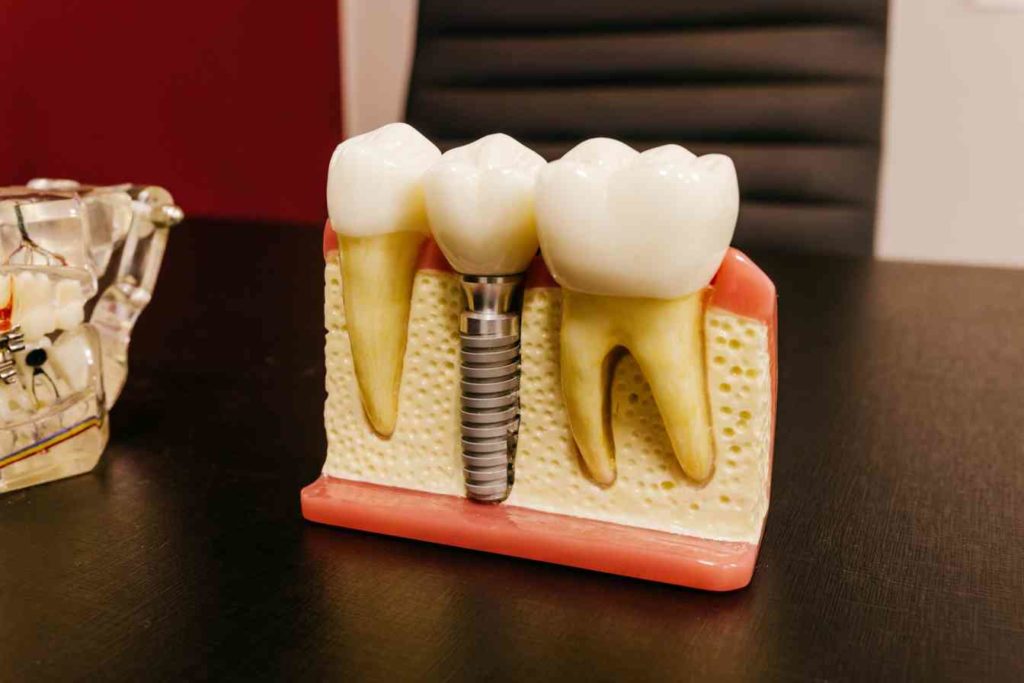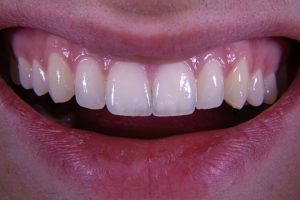Replacing missing teeth with dental implants is increasingly becoming the first choice of treatment among both dentists and patients. While dental implants have an overall success rate of more than 95%, occasional problems may arise with the longevity of the dental implant due to various reasons. These usually occur either due to failure to follow post-operative instructions by the patient or lack of adequate training and expertise at the hands of the dentist.
Risk factors associated with dental implants are generally low. Still, it is essential to remain informed about the procedure before choosing to go ahead with dental implant treatment.

Table of Contents
What Constitutes a Dental Implant Procedure?
A dental implant is made up of a biocompatible material like titanium that is drilled into the jawbone, virtually occupying the place of the missing tooth root. A dental crown is then placed onto the implant, which completes the artificial tooth restoration.
The dental implant is placed into the bone through a minor outpatient surgical procedure. Await period of 3-6 months is required following the surgery before the dental crown can be attached to it. This allows the dental implant to integrate into the surrounding bone, which imparts stability to the entire restoration.
Significant Problems Associated with Dental Implants
Surgical Complications:
The surgery involved with dental implants is a minimally invasive procedure. Nevertheless, it still carries some risks that would otherwise be associated with any other type of surgical procedure. These include possibilities of infections in the postoperative period, or nerve and tissue damage that may occur at the time of the surgery.
Peri-implantitis:
Patients are required to strictly follow post-operative instructions given to them by their dentist after the dental implant procedure. Maintaining good oral hygiene after the surgery and after attachment of the dental crown is essential for the success and longevity of the dental implant. Accumulation of plaque around the implant can lead to a condition known as peri-implantitis. Peri-implantitis is an inflammatory condition that leads to bone loss around the implant and, eventually, the failure of the dental implant.
Allergic Reactions:
Some patients can develop allergic reactions to the materials that are present in the dental implant. While titanium is almost universally biocompatible, trace amounts of nickel present in the dental implant can elicit allergic reactions in some individuals. The dental cement that is used to attach the artificial tooth to the dental implant can occasionally leach out and lead to gum reactions in some patients as well.
Inadequate Treatment Planning:
Carrying out a successful dental implant procedure involves necessary diagnostic procedures and proper treatment planning by the dentist. Failure to follow the appropriate steps can lead to an inadequate dental implant procedure that might eventually fail. The level of technical expertise and professional experience of a dentist directly correlates to the success of a dental implant procedure they carry out.
Implant Breakage:
Dental implant breakage is a rare phenomenon but may occur in exceptional circumstances. A massive blow to the face or long-term grinding and clenching habits can bend or break a dental implant.
Overloading:
A dental implant requires a few months to acquire stability by integrating into the jawbone. Attachment of the dental crown onto the implant before it has had time to stabilize puts unnecessary force onto the dental implant. Even the slightest movement of the implant in the bone can disrupt its integration process and lead to failure of the dental implant.
Medical Conditions:
Patients suffering from diseases like diabetes, blood disorders, cancer, etc. are at a higher risk of dental implant failure due to increased chances of infections and delayed healing. Smoking and excessive alcohol consumption should also be avoided to increase the success and longevity of the dental implant.







